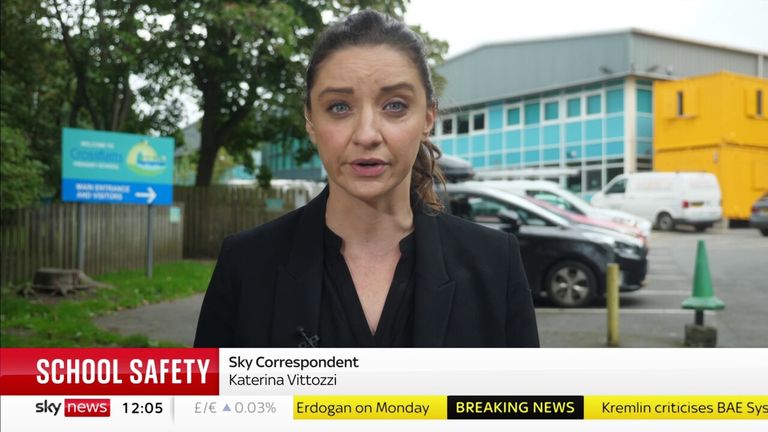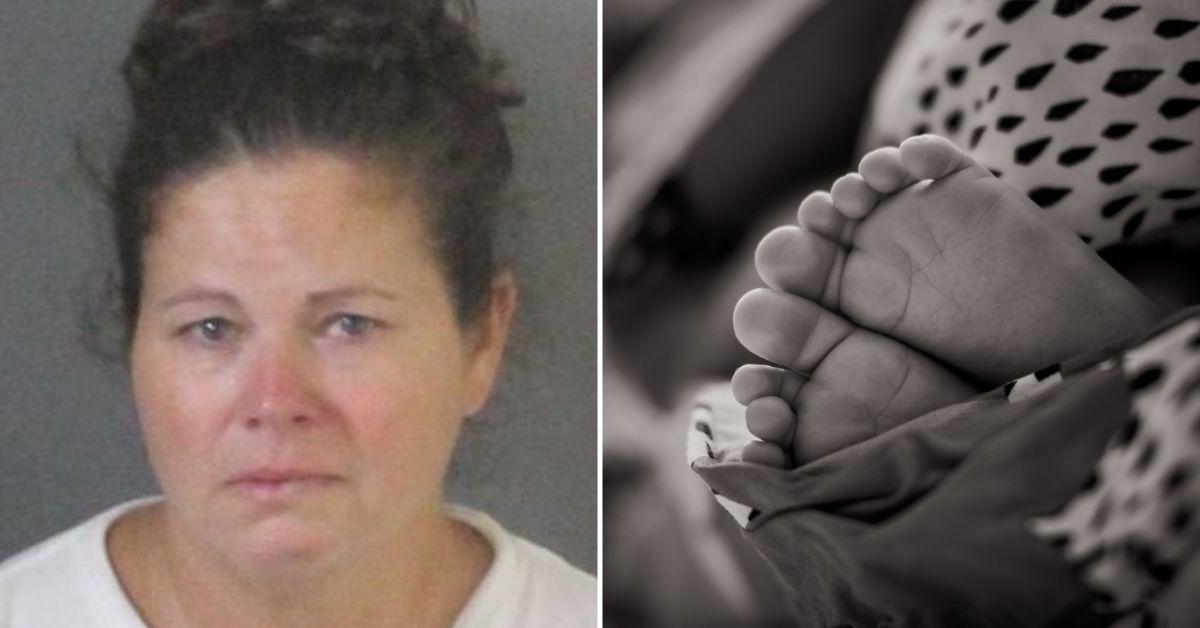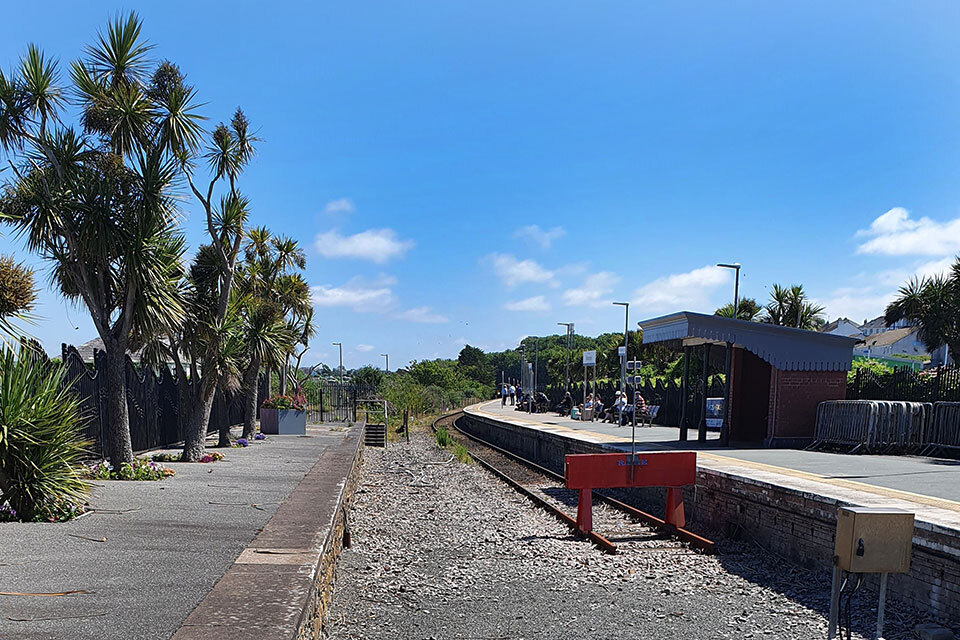Disruption at primary school with unsafe concrete to last until 2025 | Politics News
Disruption at a primary school fitted with concrete prone to collapse is expected to continue until 2025, parents have been told.
Letters from headteachers reveal the scale of the last-minute scramble to prepare for the new academic term following the government’s sudden warning about Reinforced Autoclaved Aerated Concrete (RAAC).
Ministers said on Thursday that 104 schools in England fitted with the material will have to close or partially close because of safety fears.
Politics latest: Concrete failing ‘with no warning’ prompted school closures
It is not clear how many schools will have to close entirely, but schools minister Nick Gibb insisted on Friday that in most cases “just a few buildings” or rooms within the affected schools will have to shut.
However, letters from two headteachers seen by Sky News show the scale of the challenges facing schools battling to stay open.
Nicola Bennett, head of Crossflatts Primary School in West Yorkshire, wrote that the news was “unexpected” and “very concerning”.
She said after a “forensic examination” of the whole school, it was determined that “half of the [school] building” contains RAAC, forcing them to close classrooms for years four, five and six as well as the kitchen, downstairs toilets, offices and the staffroom and a Resources Provision Base.
Ms Bennett said over the weekend builders were brought in to create temporary learning spaces, including using dividers to make further classrooms and converting the hall to make extra space.
However, she said the school won’t be able to provide hot dinners and the opening of the swimming pool will have to be postponed.
The headteacher said that while plans are in place to erect temporary classrooms, the disruption could drag on for years.
She said: “As we have such a large amount of RAAC identified, I have been advised that the remedial work to the half of the building affected is going to be a huge undertaking and therefore going to take a substantial period of time. I have currently been advised that we will get our school back to its full operation by September 2025.”
She added: “This situation has arrived with no warning and I was as shocked and upset as you will be reading this letter.
“This is not in my wildest dreams a letter I thought I would be writing or how I wanted the start of our year to begin.”
Is your child’s school one that has been forced to close over unsafe concrete fears?
Share your story with us on WhatsApp here.
By sending us your video footage, photographs or audio you agree we can publish, broadcast and edit the material.
‘Unavoidable disruption’
Sarah Cox, headteacher of Appleton secondary school in Essex, also wrote to parents to warn that RAAC was widespread and there would be “unavoidable disruption”.
Because large parts of the school will have to close, there will be a combination of on-site and remote learning in the first week of term, with years eight, nine, and 10 having to stay at home.
She added: “I appreciate that the timing of this decision, shortly before the start of the autumn term, is far from ideal. This decision has been taken out of an abundance of caution to ensure pupil safety, and we will be doing all we can to ensure that the impact on students is kept to a minimum.”
Read more:
How will I know if my child’s school is being closed?
Why is this concrete so dangerous?
The government sought to allay some of the anger on Friday, saying it would cover the costs of any alternative accommodation required.
However, it is facing questions over the extent of the safety issues and why the warning was issued so close to the start of the new term.
Mr Gibb said on Friday that a collapse over the summer of a beam that had been considered safe sparked an urgent rethink on whether buildings with aerated concrete could remain open.
The Department for Education (DfE) added that there have been recent instances of concrete failing “without warning” in schools and non-school settings.
Mr Gibb told Sky News he did not know how many schools would have to shut fully and admitted that not all schools impacted had been contacted – saying only that the “vast majority had”.
He added more schools may need to close as not all surveys had come back yet.
Labour blamed the situation on Tory “neglect and incompetence”.
Shadow justice secretary Steve Reed told Sky News Labour has raised this issue over 150 times in parliament, and added: “If they’re telling you they didn’t know this was a problem, they’re not being truthful.”
He said: “There is no way a competent government would have allowed a situation to develop where days before the start of term, they’re telling parents there’s no school for their kids to go to because they’re not safe.”




